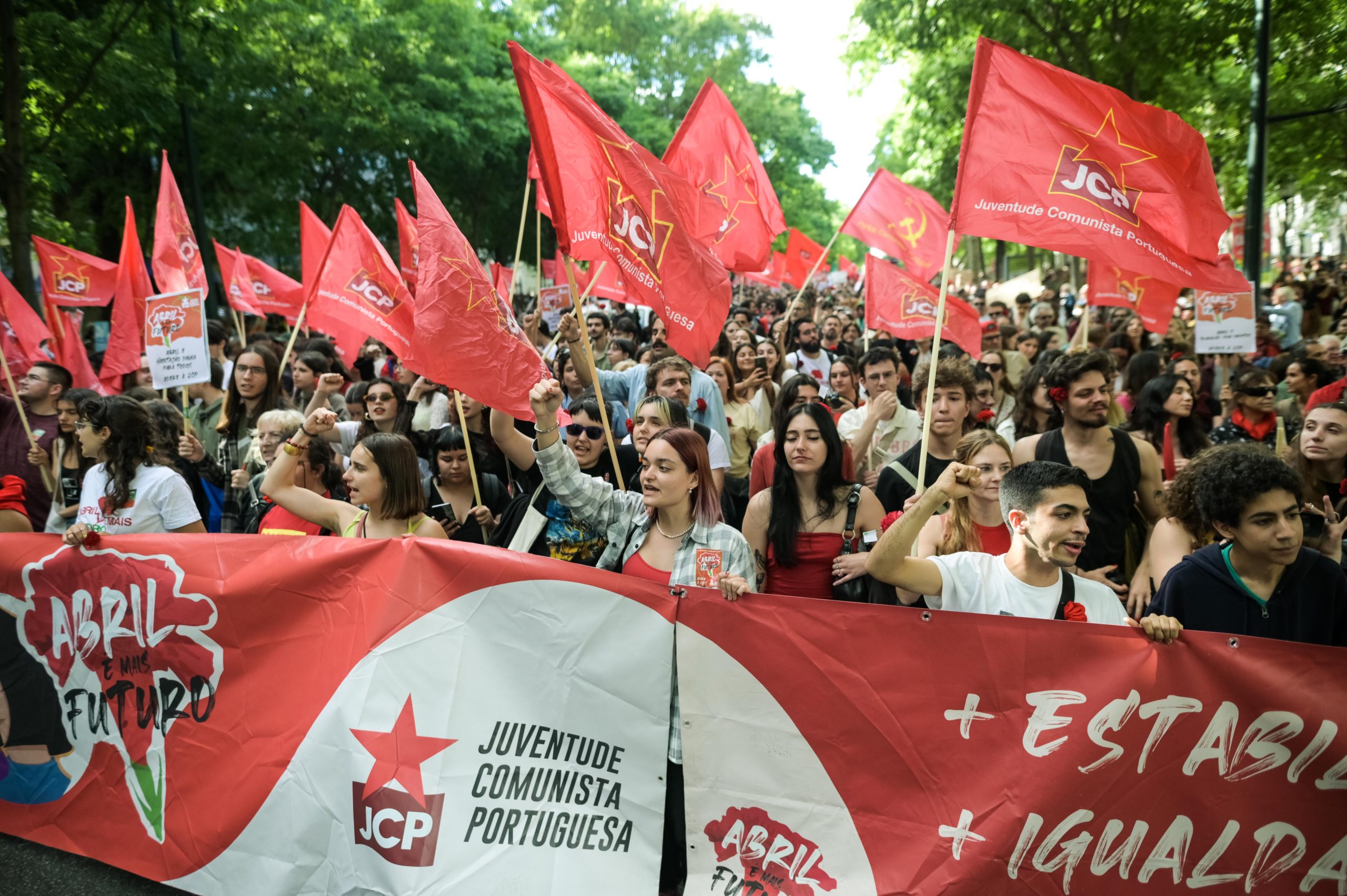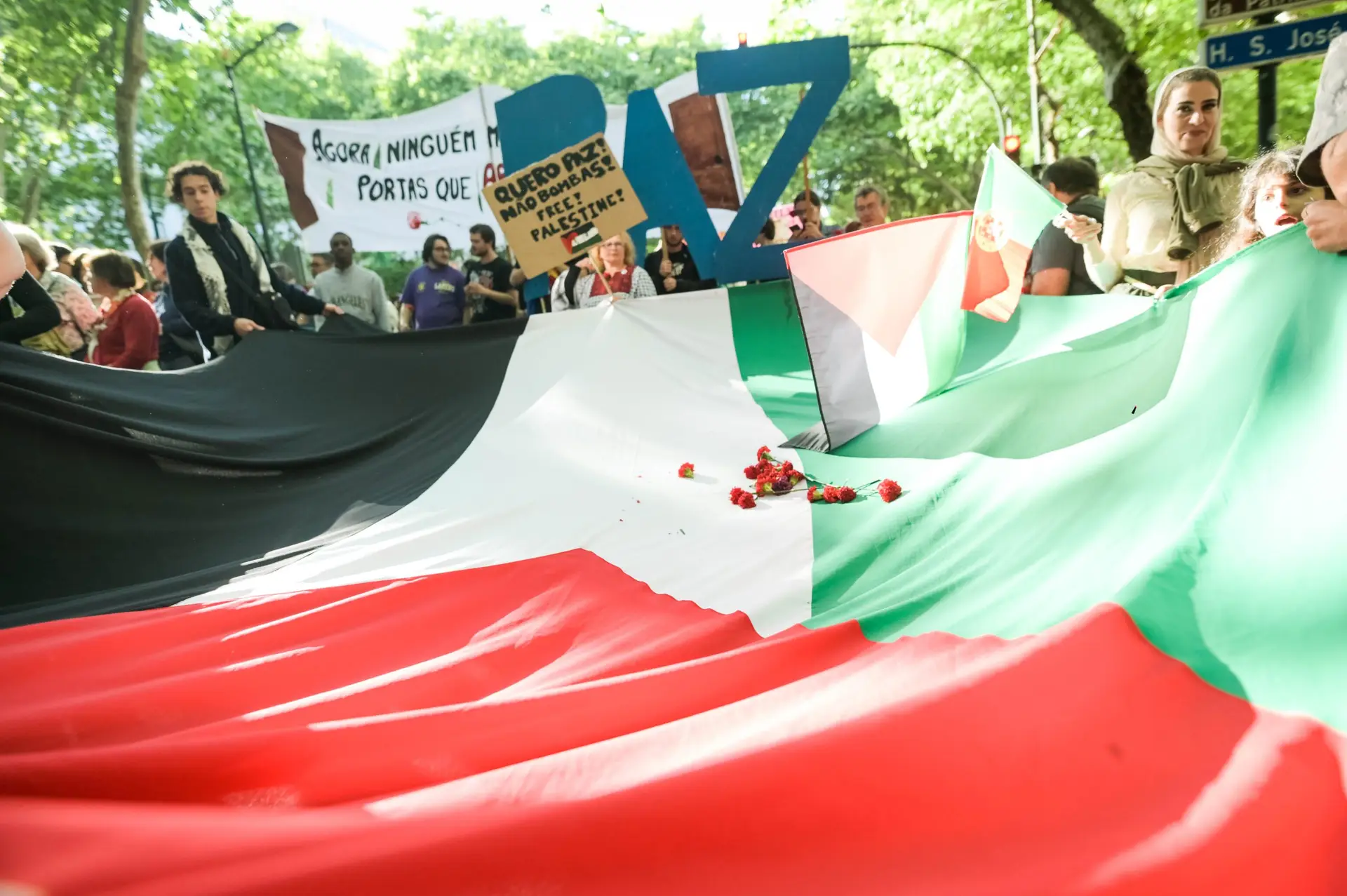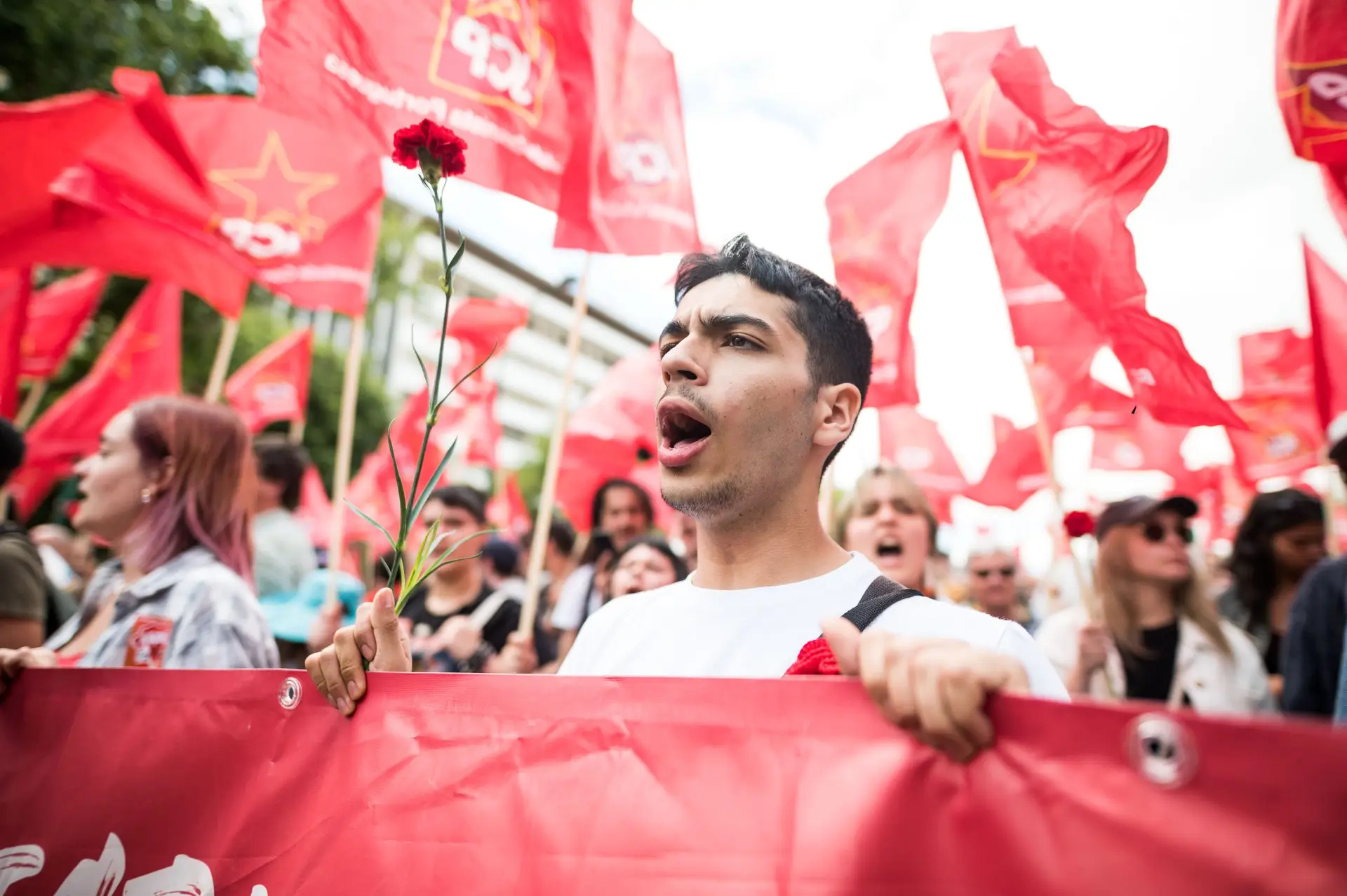
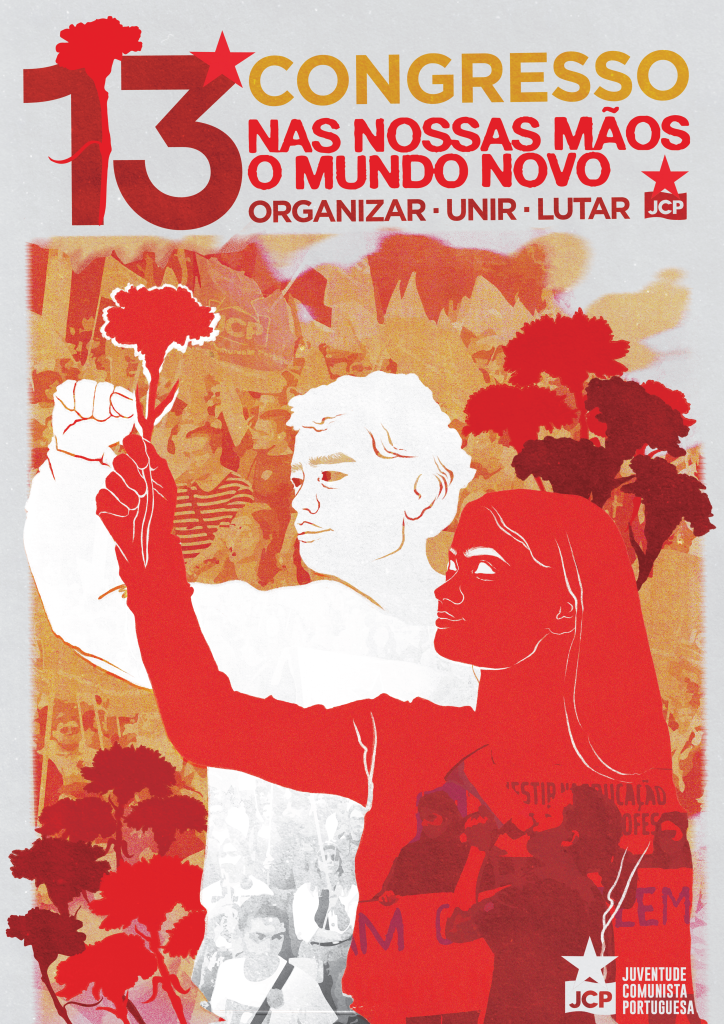
XIII Congresso
Está convocado o 13° Congresso da JCP, que se realiza a 17 e 18 de Maio. O Congresso é o órgão máximo da JCP e constitui, em todas as suas dimensões, o momento alto da vida da JCP e da juventude portuguesa.
A preparação e construção do 13° Congresso é parte integrante das mil lutas que temos pela frente e quem se junta é mais uma alavanca, é mais um ponto de apoio nas escolas, nas empresas ou no bairro. Organiza-te para transformar.
Participa na construção do Congresso, dá um contributo fundamental para o desenvolvimento da luta da juventude em torno dos seus problemas concretos, para a linha e orientação, para a acção dos jovens comunistas em Portugal.
Lê a Resolução Política da Direcção Nacional que convoca o Congresso!
 Clica aqui para leres o Projecto do Resolução Política do 13º Congresso da JCP!
Clica aqui para leres o Projecto do Resolução Política do 13º Congresso da JCP!
ENVIA AS TUAS PROPOSTAS PARA 13congresso@jcp.pt

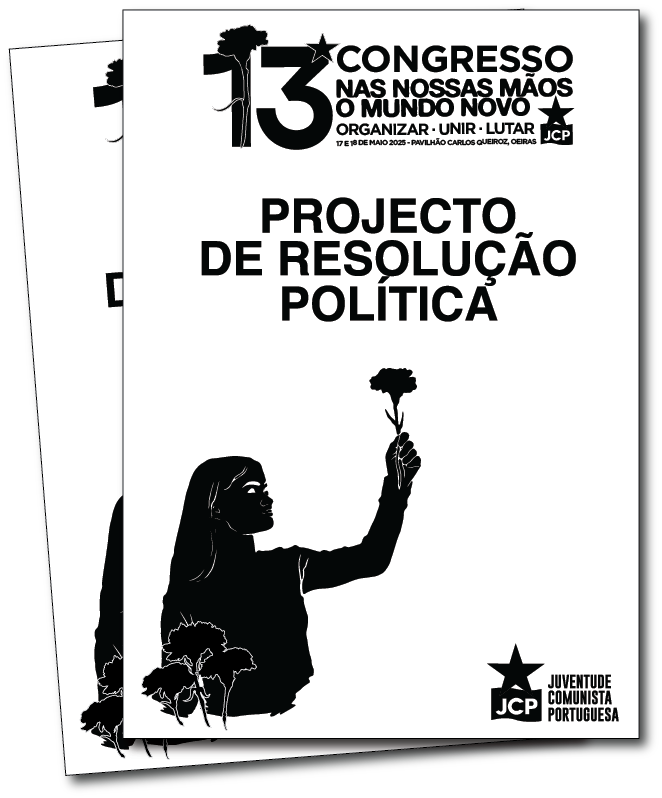

A ORGANIZAÇÃO REVOLUCIONÁRIA DA JUVENTUDE PORTUGUESA
Intimamente ligada à realidade da juventude portuguesa, às constantes alterações da sua vida, aos ataques que enfrenta e às batalhas que trava, a intervenção da Juventude Comunista Portuguesa, enquanto Organização Revolucionária da Juventude, corresponde ao seu objectivo de transformação da realidade e da sociedade. Pelos seus objectivos, propostas e acção, é a única que dá resposta aos problemas dos jovens, dinamizando a luta pelos seus direitos e aspirações.
